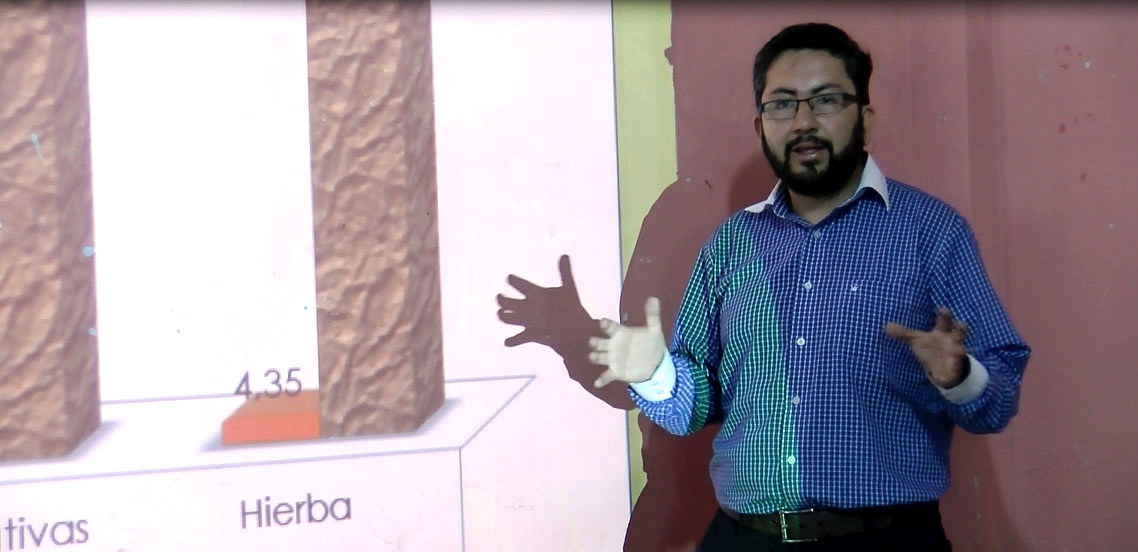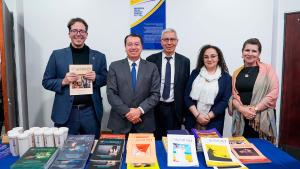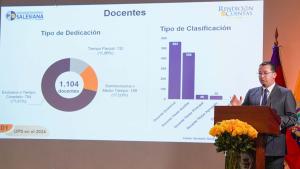UPS students and professors attended the first Conference on Climate Change in Ecuador
UPS students and professors attended the first Conference on Climate Change in Ecuador

Ronnie Lizano , coordinator of the Environmental Sciences research group ( GRICAM for its acronym in spanish), Sheila Serrano, director of the Environment Modeling research center (CIMA), Andres Reisancho and Paola Chavez UPS-Quito students majoring in environmental engineering , participated in the First Annual Conference on Climate Change in Ecuador which took place in Universidad Estatal Peninsular de Santa Elena (UPSE) from the 14 to the 16 April.
The congress was attended by students, researchers, managers, representatives of universities and research institutes and ministries. The purpose of this meeting was to disseminate and discuss various topics related to climate change and its influence on the environment. Other objectives were to encourage scientific research, establish new challenges of knowledge and create links for analysis and decision making on public policies for sustainable management of natural resources.
Other topics that were discussed were cases of floods, droughts, extreme weather events around water resources, climate change in marine environments, biodiversity and influence of climate change in viral infections in tropical areas.
Within this framework, Lizano and Chavez participated with the paper titled "Vulnerabilidades de los sistemas comunitarios de agua potable frente al cambio climático: Caso de estudio Proyecto de agua potable Pesillo – Imbabura", while Serrano presented the topic " Transición de fase continua a la lluvia intensa con datos de radar y microondas en la zona de influencia del Fenómeno del Niño". Reisancho presented his study titled "Riesgos a inundaciones por precipitaciones, cambio climático y Fenómeno de El Niño en la ciudad de Machala"
This conference was organized by the Ecuadorian Network of Climate Change ( CCER ) and contributed to the academic discussion of conceptual frameworks , methodologies and impact on biodiversity and ecosystem management alternatives.





Follow us
Follow us